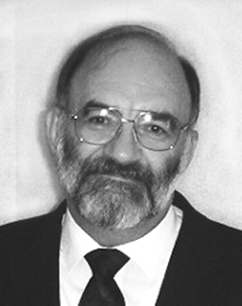MY PERSPECTIVE, Gary Damron
We continue a series on the gospels, which reveal the work of God through Jesus. In the transition from the old to the new covenant, God uses Herod and Gabriel - Joseph and Mary - Zacharias and Elizabeth - and the words of ancient prophets. Leading up to Jesus' birth, there were several announcements. Last week we read how Zacharias encountered the angel Gabriel in the temple, and later we'll see how Joseph received news about the coming child. Today, we find in Luke chapter 1 the account of the angel announcing the birth of Jesus to Mary. Two things are worth noting: First, Luke writes from Mary’s viewpoint, after spending time with and interviewing her. Also, Luke reveals Jesus' arrival through universal human relationships, emphasizing not just Jewish heritage.
God communicated His plan through a divine messenger (Gabriel), and Mary's response of self-surrender made possible God's expression of Himself in Jesus. The Messiah is not just the greatest of human greats. He's not someone like God, or someone close to God. He is the eternal Son, involved in creation (John 1:3).
Before going any further, here's an in-a-nutshell description of incarnation. Divinity and humanity joined together in an inseparable union, conceived by the Holy Spirit in a girl named Mary. The impossible became possible. Jesus' divine nature did not change before or after the incarnation. He was pure spirit, existing with the Father as the second person of the trinity. During incarnation, He took on human nature, still fully divine, yet fully human. Since the resurrection, He's eternal both in human and divine form, and His resurrected body gives a clue of what we may be like. Jesus is currently in heaven interceding for believers as a high priest, reigning as king, and overseeing the growth of His church.
Gabriel came to Mary in Nazareth, which Luke explains for non-Jewish readers was a village in Galilee. Mary was a virgin, engaged to Joseph who was from the family of David. Terms espoused and betrothed are used, and their relationship was more binding than today's engagements. Jewish couples in Israel were engaged for months, up to a year, which gave them time to get acquainted and prepare for their wedding and home. Any infidelity during this time was considered adultery, and the commitment could only be dissolved through divorce (see Matthew 1:19). According to Luke 1:32 and 69, as well as the genealogy in Luke chapter 3, Mary was also descended from David.
Gabriel came, not in a dream or a vison, but as an actual visitor. His word to Mary was, "'Hail [which means rejoice], favored one! The Lord is with you'” (Luke 1:28). She was chosen to fulfill the hope of every devout Jewish woman to be the mother of the Messiah. For all people, she would deliver the Deliverer. We can say as Elizabeth exclaimed later, "'Blessed among women are you … the mother of my Lord'” (Luke 1:42-43).
Though Mary was troubled by the message, she didn't express doubt as Zacharias had. Rather, her innocent words asked only for an explanation, "'How can it be?'" Her concerns were met with the same divine word spoken to Zacharias, "'Do not be afraid'” (Luke 1:29, 30). The presence of God that brings forth the miracle will also sustain her in the journey ahead.
Gabriel told Mary the child would be named Jesus, which means “The Lord saves”, and is the Greek form of the Old Testament name Joshua. Most are aware of Joshua, son of Nun, who led Israel into the Promised Land. Mary’s Jesus would guide and deliver His people, leading them into the promised “rest” (Hebrews 4:1-11). That passage compares the rest found in Jesus to Sabbath rest - after creation - and also equates it with eternal rest in heaven. Another Joshua was a high priest referenced in the Book of Zechariah, chapter 3. Mary's unique holy child would be the savior, the deliverer, the purifier, made available for all people.
Gabriel continued, "'He will be great, and will be called the Son of the Most High; and the Lord God will give Him the throne of His father David; and He will reign over the house of Jacob forever; and His kingdom will have no end.”
God had made promises in the Old Testament, including 2 Samuel 7:14; Psalm 2:7; 89:26-27. The rule of the Messiah-King will never pass away; the One who saves, protects, and delivers is eternal as only God's Son can be.
Then, Gabriel delivered encouraging good news that Mary's kinswoman Elizabeth, who was aged and considered barren, would also miraculously have a child (Luke 1:36).
Through submission and surrender, Mary became the vessel of God! In humility and selfless obedience, she had a part in bringing ancient promises to pass. We also can adopt Mary's statement of surrender with faith, humility, and a willingness to serve. Her response to the announcement was simple, "'Behold, the bondslave of the Lord; be it done to me according to your word.'”
Next week, before we move on to the angel's announcement to Joseph, we plan a look at Mary’s visit to Elizabeth, found in Luke 1:39-56. I encourage you to read the passage, which includes Mary’s Magnificat, a prayer of praise in which she exalts God's greatness, mercy, and justice.











